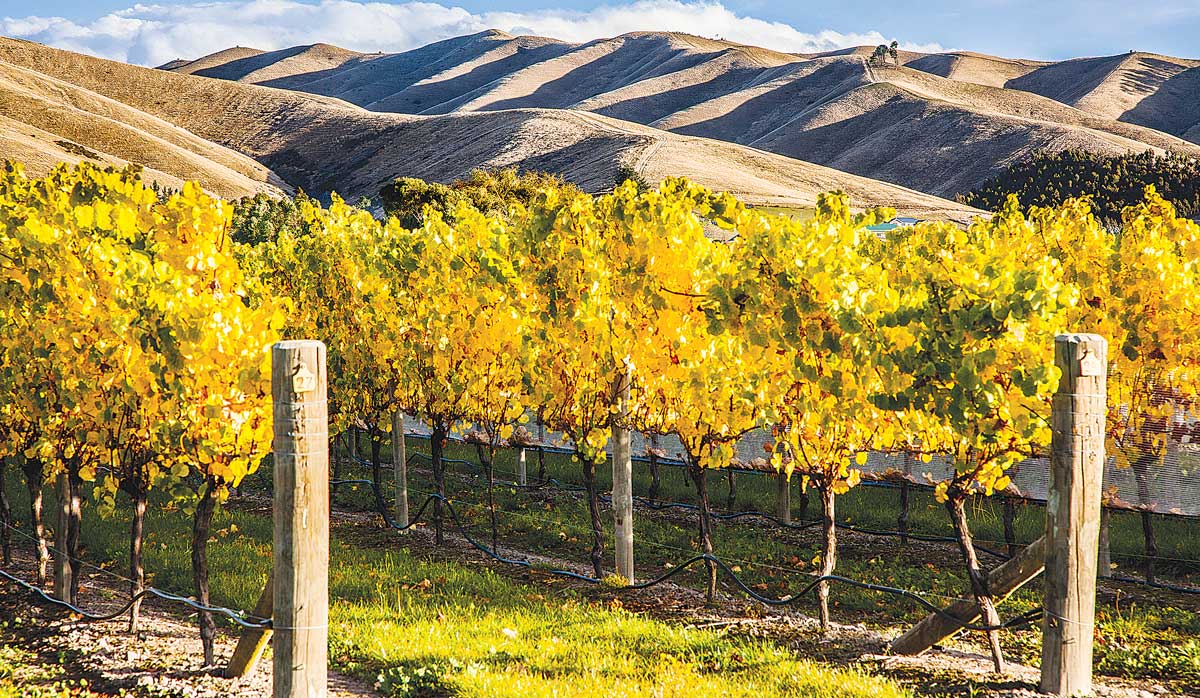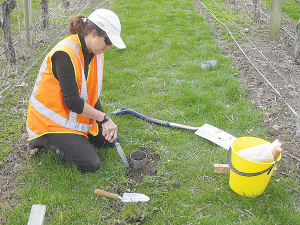A 19-year soil monitoring programme in Marlborough is showing viticultural use is leading to more compact soils, increased nutrient loss and a decrease in organic matter.
It may mean vineyard managers and owners have to change their approach to viticultural practices.
Marlborough District Council Land Resources Scientist, Matt Oliver, says the soil monitoring began back in 2000 as part of a national programme called 500 soils. Ninety-six different sites within the province are monitored, with 25 of those being part of the programme since it began. The sites represent proportionally the land use of the region, with the majority of the sites being vineyards. Oliver says in terms of vineyards, they monitor three separate areas; under vine, mid-row and wheel tracks. It is in the wheel tracks that the heaviest compaction is occurring and that is something that needs to be addressed.
“Vineyards are very prone to compaction and it is caused by tractor use and activities like stone rolling. In the vineyard, wheel tracks are well below the desired soil porosity. Some of our vineyards have the most compacted soils in the country when compared to other land uses.”
The constant vehicular activity among the vines is due to canopy management, spraying, trimming, harvesting and mowing, with the compaction decreasing the air-filled porosity of the soil. This turns soft soil (with lots of pores) into hard soil.
“The harder the soil, the more run-off you get,” Oliver says. “Your irrigation may not be going where you want it to, or it is evaporating more. There could be a loss of nutrients and sediment into waterways.”
There are ways to mitigate, but Oliver says due to the very nature of a vineyard, there is always a need to drive between the rows.
“Maintaining grass wheel tracks and using mechanical loosing techniques might help in the short term. But longer-term solutions might include raising soil organic matter and calcium levels and changing management techniques to minimise track events.”
Changing to multirow equiptment is another long-term solution.
 |
|---|
|
Leaving grass to grow after vintage is a good way of adding to soil quality.
|
It is not just the environmental risk facing growers, Oliver says. There is also an economic impact within the vineyard.
“If you imagine your vine growing with wheel tracks either side that are really compact, that compaction goes down through the soil for a distance. It could be quite deep, depending on the type of soil.
“If your vineyard has compaction going deep, what effect is that having on your vineyard roots? Is it making the roots go down deeper before they can access the water and nutrients in the inter-row? I suspect if you dug a pit and looked at where the root architecture is, they would only occupy a very small area, as there is nowhere for them to penetrate due to the compaction.”
The digging of pits on a regular basis is something Oliver encourages vineyard managers to do, especially if there are any signs of the canopy not performing to its optimum.
“The chances are that you have something happening with the roots of your vines. It might be a lack of water, or lack of nutrients. Or often it is a lack of air.”
When it comes to organic material decreasing in vineyards, Oliver says the answer is not to throw tonnes of compost on, in a one-off effort.
“To actually make your soil test shift you would have to add huge amounts of compost, up to 150 tonnes per hectare in one event. That would lead to huge growth problems and you would get a lot of leaching to groundwater that could cause environmental problems.”
Instead he says, add a more moderate amount of compost or organic matter over the whole vineyard every year. If you are applying a nitrogen application, consider added something like fishmeal or humate to it. Let the grass grow a bit, and in particular let the grass grow after vintage under the vines.
“Then if you use herbicide, you would spray it out at the time it is appropriate for you. But the idea of maintaining your vineyard with bare earth under the vines 12 months of the year is doing you a lot of harm. You are reducing your water infiltration, you are reducing your nutrient holding ability. “
Oliver suggests spraying weeds out six weeks before budburst, so they die off releasing nutrients in time to feed the awakening vines. Depending on the vigour of your vineyard, you could consider the use of undervine mowing or cultivating in combination with herbicide use to ease compaction and improve organic matter content. Use cover crops and sow summer grasses underneath, so that when you mow out the crop, the grass is there coming through.
All of these are management practices, which will take time to take effect. But if the past 19 years of soil survey work has shown anything, it is that doing nothing is not the way to move forward.















